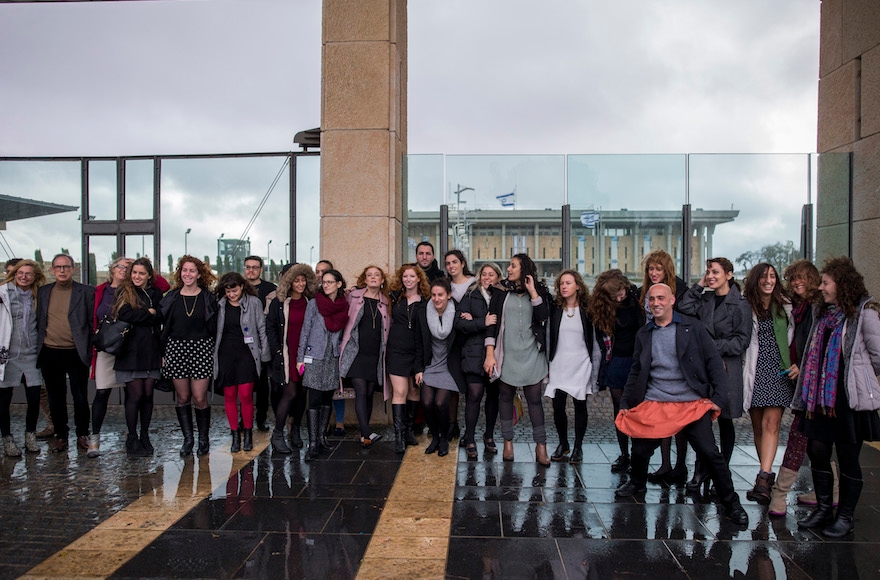JERUSALEM (JTA) — Dozens of female aides to Israeli lawmakers showed up to work at the Knesset in short skirts to protest the enforcement of an institutional dress code.
At least nine aides reportedly were refused entrance to the Knesset on Wednesday due to the short length of their dresses, according to reports.
The protest came after at least two parliamentary aides in recent days were detained while trying to enter the building under the Knesset dress code, whose enforcement has been beefed up in the past couple of weeks.
Lawmaker Manuel Trajtenberg of the Zionist Union party reportedly removed his jacket and shirt and tried to enter the Knesset in his undershirt in support of the women.
“You’ll all have to wear burkas!” he reportedly said to the women.
Female Knesset guards reportedly have been tasked with enforcing the building dress code after the Knesset director-general, Albert Saharovitch, issued a paper refreshing it about a month ago. The Knesset spokesman said the dress code was not made any stricter, but that guards have been instructed to enforce it so as to “prevent offense to any visitors and guests.”
According to the Knesset website, “entrance to the Knesset is permitted only in appropriate attire (no tank/spaghetti tops, cropped tops, shorts or ¾ length trousers, ripped trousers, shirts with political slogans, short skirts and shorts dresses, flip-flops or open-back clogs).” The rules apply to those over the age of 14.
One aide told The Jerusalem Post that a guard said skirts could not be more than 2 inches above the knee, though there is nothing written about the actual length requirements.
The labor union representing the legislative aides reportedly has protested the enforcement of the dress code on the women.
Some lawmakers argue that their aides’ clothes are fashionable and respectable while not being a modest length.
“I completely support the protest of the parliamentary aides because it is a battle that concerns all of us, the struggle not to be measured according to the length of the skirt,” said Zionist Union lawmaker Meirav Michaeli, whose aide was barred from the building last week, in an interview with Haaretz. “I am in favor of respectable appearance, but we must differentiate between respectable appearance and modest appearance. ‘Dress code’ cannot be an outmoded method for objectifying women.”
The Knesset spokesman told reporters that the protest was “nothing more than an orchestrated provocation that disrespected everyone.”
JTA has documented Jewish history in real-time for over a century. Keep our journalism strong by joining us in supporting independent, award-winning reporting.






